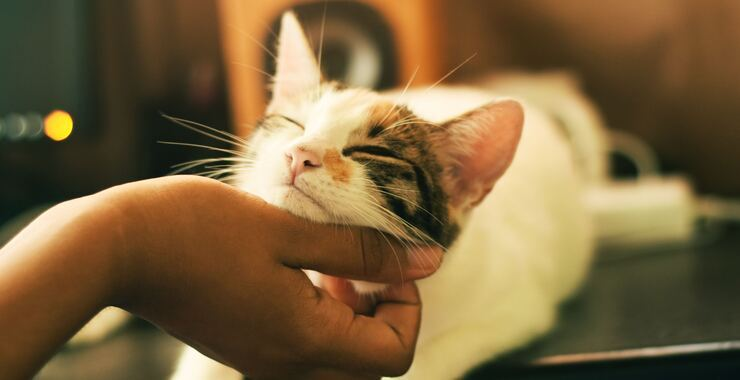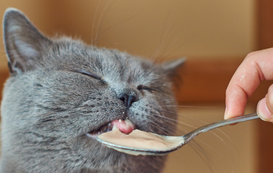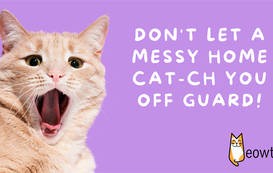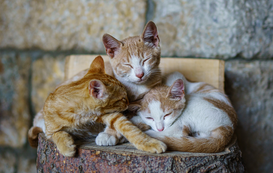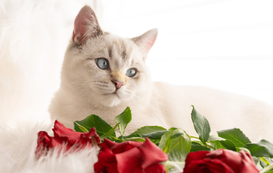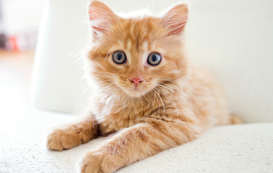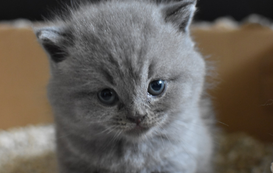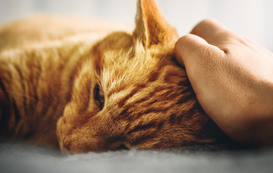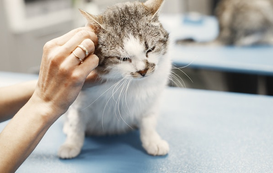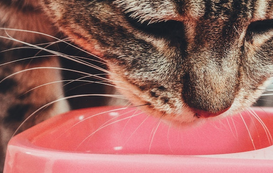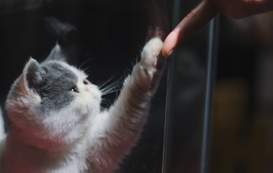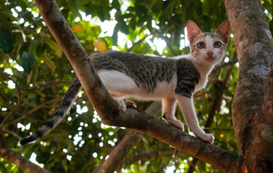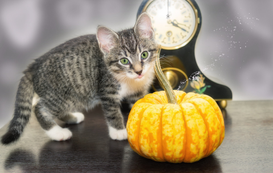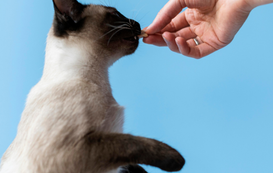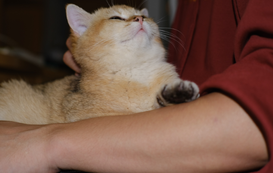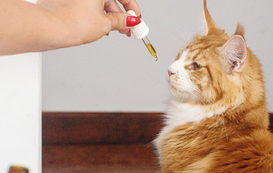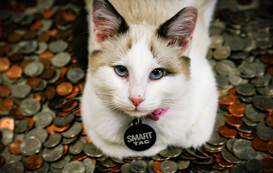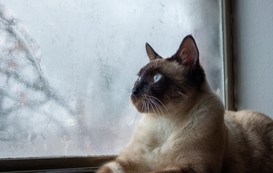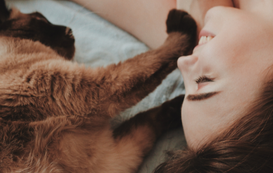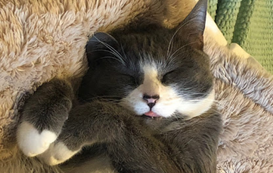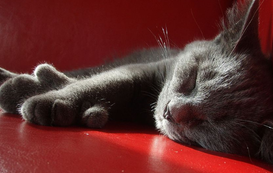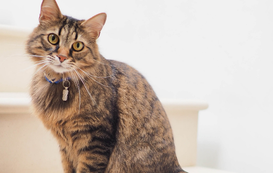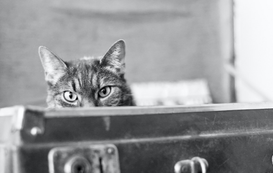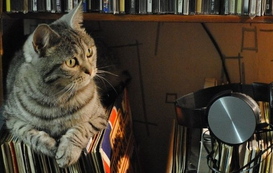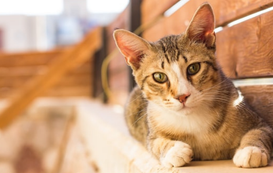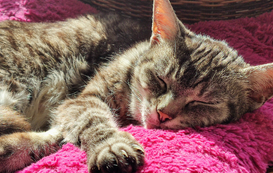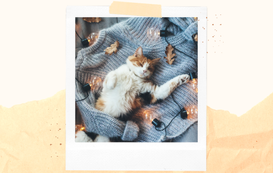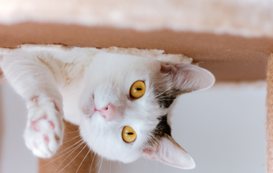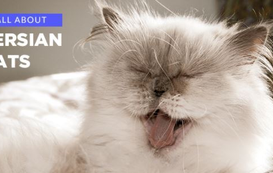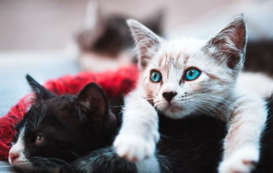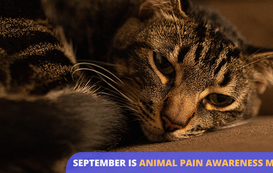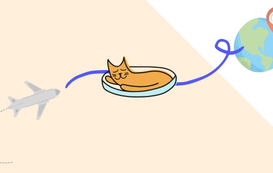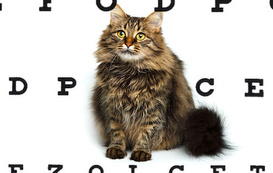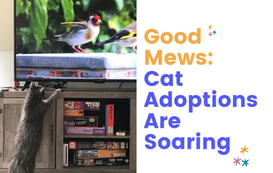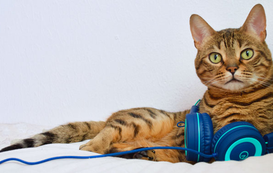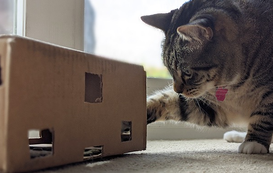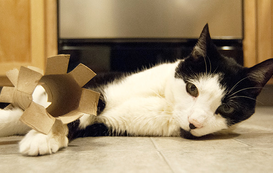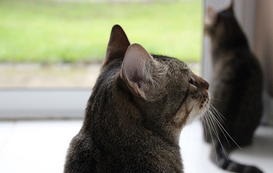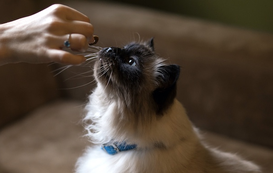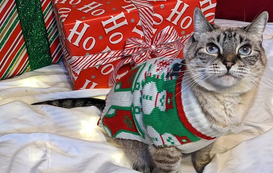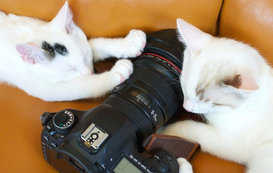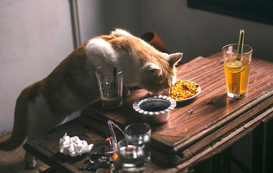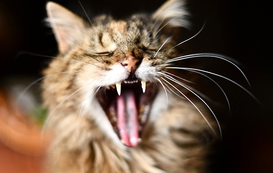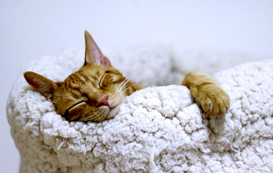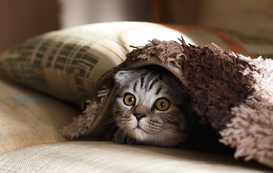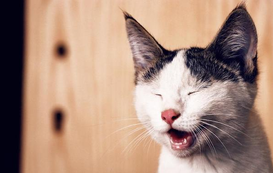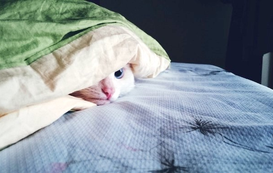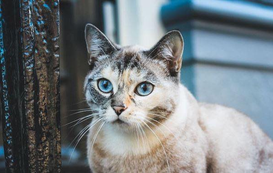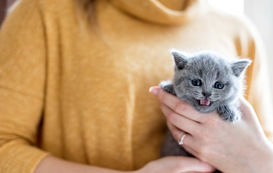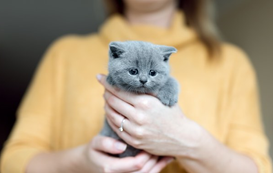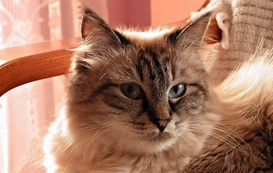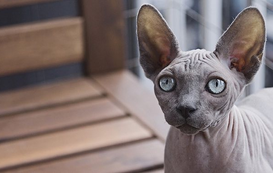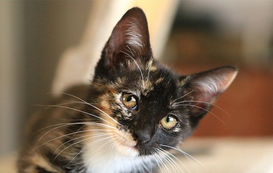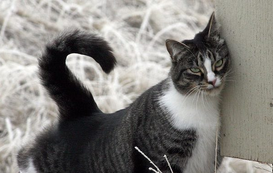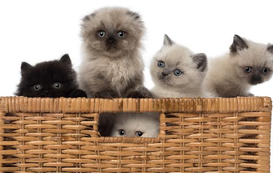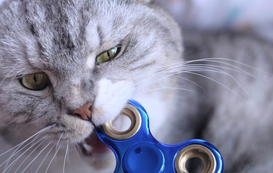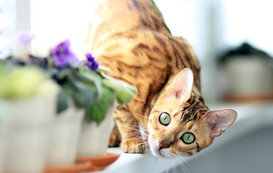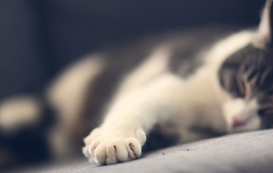Would you describe your cat as social? Affectionate? Timid? Do they like fellow animals, or do they prefer to have personal space? Are they an energetic troublemaker or a sleepy lounger?
We know that there are stereotypes about the personalities of certain breeds or colors of cats (looking at you, orange kitties!), but there are actually many factors that affect how your cat expresses itself. Here are four factors that can shape the personality of your feline friend.
1. Early Life Socialization
The first 8-16 weeks of a kitten's life can greatly influence their personality and demeanor. During this period, kittens tend to be fearless in exploring the world around them. It is important to provide them with an enriching environment in order to allow them to become comfortable with a variety of sights, smells, sounds, etc. The more they are exposed to something as a kitten, the less likely they will be to develop a fear or aversion toward that thing later in life.
The amount and type of human and animal interaction young kittens are exposed to can also have a direct impact on the way they engage with others into adulthood. Kittens should remain with their mother and siblings until roughly 12 weeks of age, as early separation can lead to frequent 'nursing' on blankets and other materials, fear, aggression, and health issues in the future. Keeping a kitten with their mother helps them to naturally bond with their litter, learn important behaviors and skills, and feel safe enough to explore the environment.
2. Parental Inheritance
Studies have shown that kittens may inherit important traits primarily from their father, including things like boldness and stress levels. According to research, kittens born to 'friendly' fathers have been shown to display friendlier demeanors toward humans than those born to 'unfriendly' fathers, regardless of their level of early life socialization. Cats, of course, inherit personality and physical traits from both their mother and father, but some believe that these traits are more strongly influenced by the father's genes.
3. Breed
It turns out that some of the stereotypes may be true. Breed can indeed affect a cat's personality! Here are some examples. While these personality generalizations do not hold true for all cats of a certain breed, knowing your cat's breed mix may help you predict whether they will be more active or nap-prone, social or standoffish, anxious or easygoing, etc. This may be attributed in part to the preference for certain characteristics in mating over the long term.
4. Life Experiences
While early life socialization tends to have a strong impact on a cat's personality, their experiences later in life will continue to shape their behavior and demeanor. For example, an outdoor cat left to fend for itself will tend to be more territorial and aggressive than their comfortably-housed counterparts. This is likely due to the fact that these outdoor-dwellers are typically less socialized and often live on high alert in case of threats. It is easier for a cat who was raised in a loving home environment to feel safe and comfortable, which may lead to a more affectionate and social personality. While some outdoor cats may be able to adapt to an indoor lifestyle given the opportunity, many find the transition to be too difficult or undesirable. If you are interested in providing a safe environment for an outdoor or feral cat, there are an abundance of 'adoption' opportunities across the nation for outdoor garden or barn cats.
In Summary
A multitude of factors, including the love and care with which you provide your kitty, affect your cat's individual personality. Keep in mind that many key characteristics are either inherited or embedded early on during kittenhood, so your cat may be difficult to change.
If you are looking for a cat sitter on Meowtel who understands your cat's unique behaviors and quirks, you can start your search here. You can choose from a variety of background-checked sitters on Meowtel to help you find the purrfect fit for your feline friend!
Ready to find the purrfect sitter for your feline friend? Find a cat sitter on Meowtel today!

